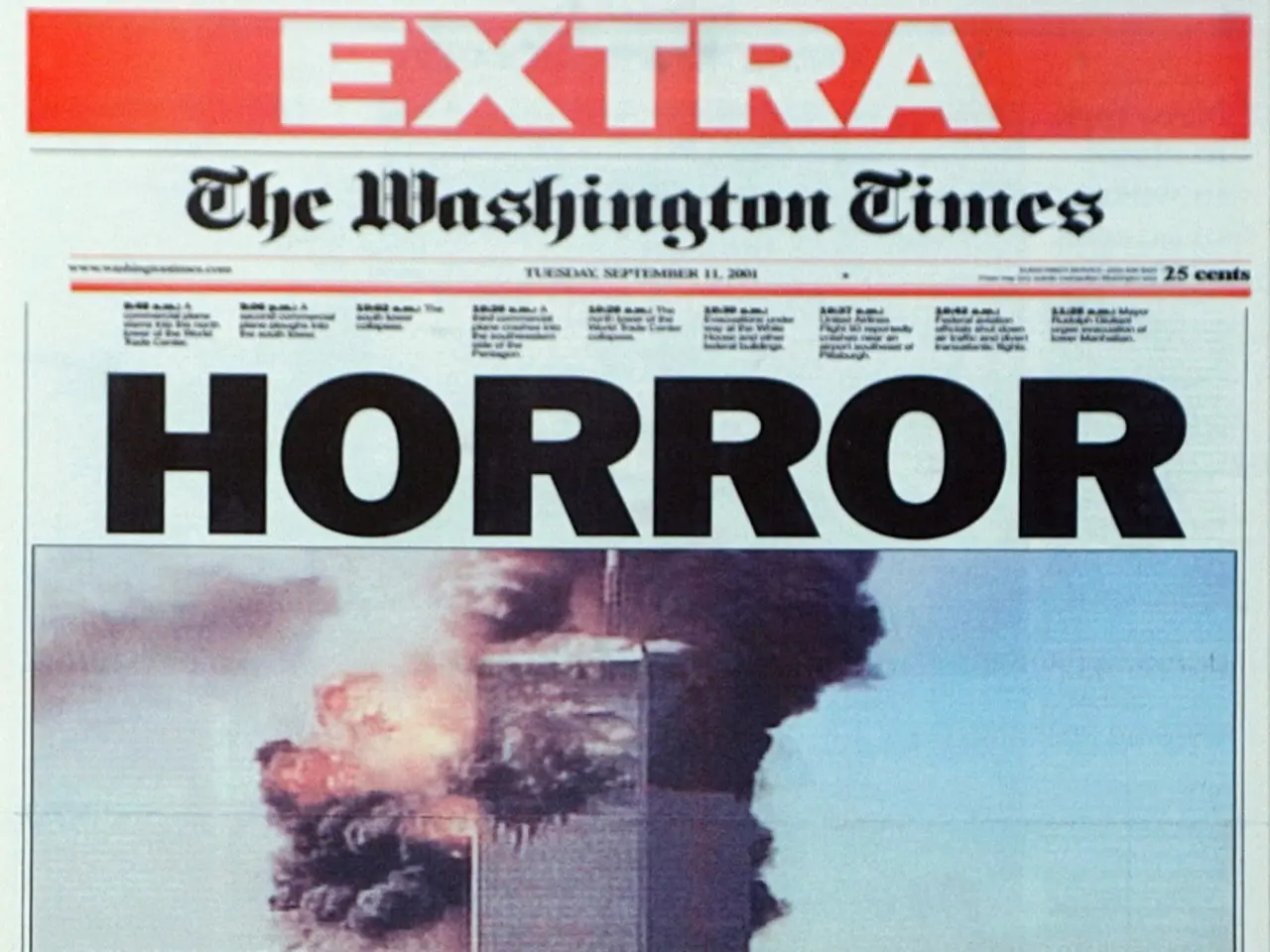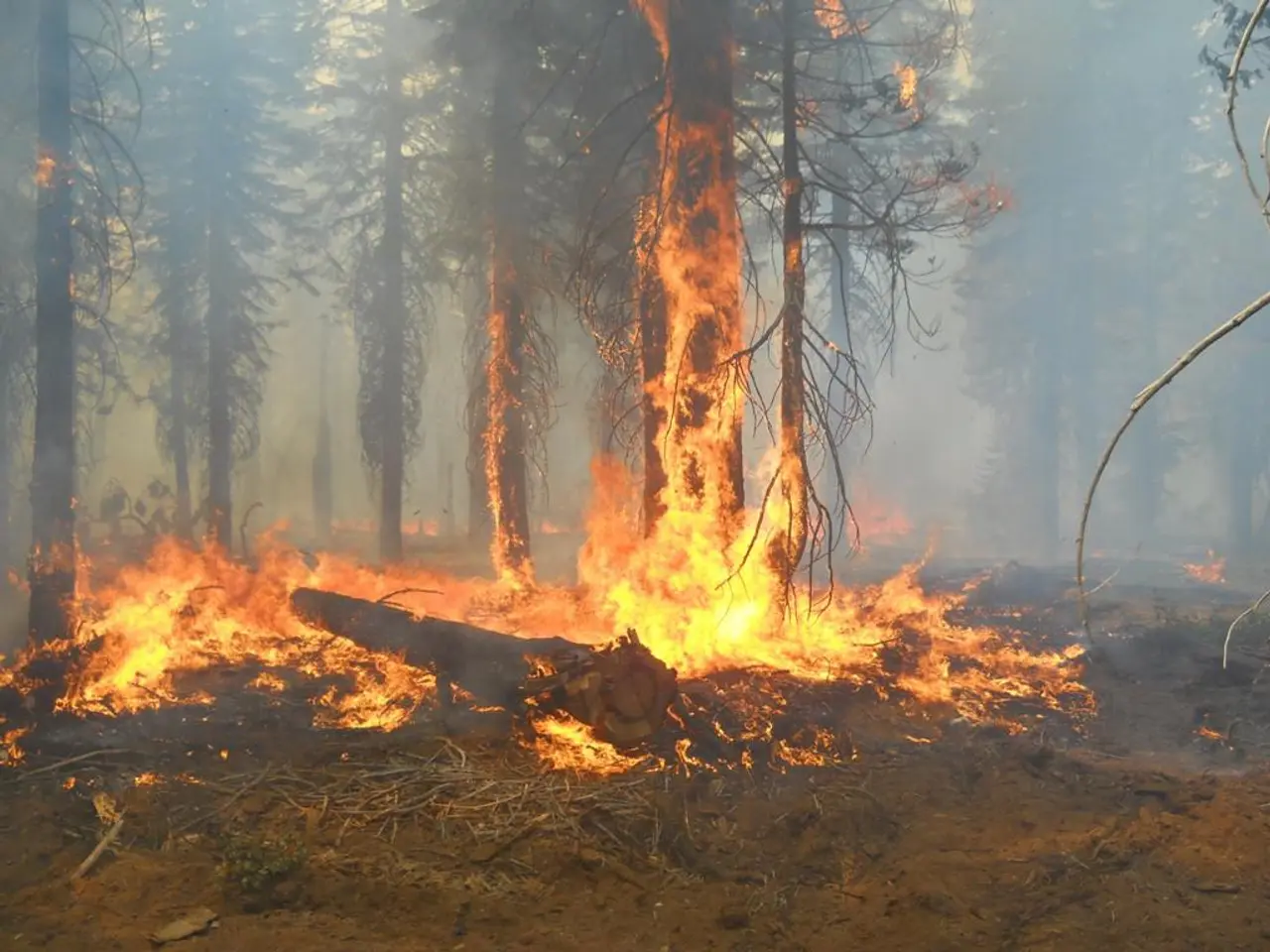Football team Chelsea expresses frustration over a two-hour delay due to harsh weather conditions during the Club World Cup. Could the 2026 World Cup also encounter similar weather-related disturbances?
The 2023 Club World Cup, currently underway in North America, has been hit by a series of weather-related disruptions that have raised concerns about player and fan safety, as well as the scheduling and preparedness for such conditions in large-scale tournaments held in the region.
The heatwave sweeping across the continent has been particularly challenging, with temperatures topping 38C (100F) in several matches. The brutal heat conditions have left players complaining about the "impossible" and "terrible heat," which has affected their performance and health.
One of the most significant disruptions occurred during Chelsea's last-16 match against Benfica, which was delayed for almost two hours due to an extreme weather event. The sight of players trudging off the pitch as storm clouds rolled in is expected to be a common sight during next summer's World Cup, given the ongoing heatwave.
Enzo Maresca, Chelsea's manager, expressed his concerns about the disruptions, stating that the Club World Cup may not be the ideal location to host the competition under such conditions. Boca Juniors, another participating team, were eliminated from the competition during the delay due to the result of the other group game.
FIFA's medical experts have been in regular contact with the clubs to manage heat acclimatization and health risks, emphasizing health as a priority. The US National Weather Service is collaborating closely with FIFA to monitor weather conditions and issue timely alerts to reduce risks to players and fans.
FIFPro, the global players’ union, has called for longer half-time breaks at future tournaments to mitigate heat stress and has urged a review of match scheduling to avoid peak heat times. They view this year's Club World Cup as a "wake-up call" for the need to reconsider match timing and scheduling for upcoming events like the 2026 World Cup to avoid extreme weather disruptions and player health risks, especially in cities known for high heat risk such as Miami.
Organizers are tasked with improving protocols for weather interruptions to uphold sporting integrity and avoid matches being unduly affected by meteorological chaos. There is a strong push to ensure that the competition runs smoothly and safely for all involved, while maintaining the integrity and flow of the competition.
It is worth noting that only one of the games impacted during the current Club World Cup (a clash at the MetLife Stadium in New Jersey) will be hosting games next summer. FIFA's top priority remains the health of everyone involved in football, and they are working closely with the US' National Weather Service ahead of next summer's tournament to ensure a safe and successful event.
Despite the challenges, the spirit of the competition remains undeterred. In the delayed Chelsea vs. Benfica match, Chelsea managed to win in extra time after Benfica was able to equalize shortly after the delay. The Club World Cup continues to showcase the best of football, despite the weather-related obstacles.
Players and managers are worried about the impact of intense heat on European football leagues, particularly the Premier League, as the heatwave sweeping across Europe reminds them of the brutal conditions faced during the 2023 Club World Cup in North America.
FIFPro, calling the Club World Cup a "wake-up call," has urged a review of match scheduling for upcoming events like the 2026 World Cup, to avoid extreme weather disruptions and player health risks, especially in cities with high heat risk such as Miami.






